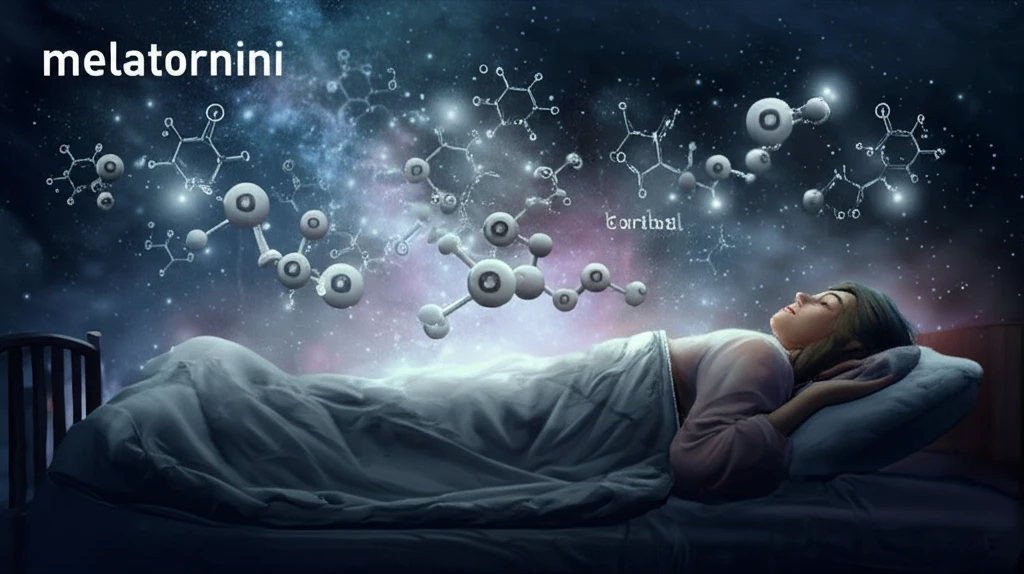
Chasing Sleep: How Melatonin and Cortisol Impact Cognitive Function as We Age
"Uncover the critical roles of melatonin and cortisol in maintaining cognitive health during midlife and beyond."
As we navigate the journey of aging, concerns about sleep quality and cognitive decline often surface. Mounting evidence suggests that disturbances in our natural sleep-wake cycle, known as the circadian rhythm, can significantly impact cognitive functions. Normal aging is linked to dysfunction of suprachiasmatic nucleus (SCN), which is even more pronounced in brain pathologies. Understanding the key players in this process, particularly melatonin and cortisol, is crucial for promoting long-term brain health.
Melatonin, often dubbed the "sleep hormone," is primarily synthesized by the pineal gland and meticulously regulated by the SCN. Its consistent rhythm is vital for indicating and regulating the body's internal clock. Cortisol, another critical hormone, is coordinated by the hippocampus and the hypothalamic-pituitary-adrenal (HPA) axis, further intertwining hormone regulation with cognitive processes.
While studies have hinted at the connection between circadian disturbances and age-related cognitive challenges, a comprehensive understanding of how melatonin and cortisol profiles change over time and affect cognitive function remains elusive. This article delves into recent research that sheds light on these critical relationships, offering valuable insights and actionable strategies to safeguard your cognitive well-being as you age.
Melatonin and Cortisol: The Dynamic Duo for Cognitive Health

Recent research has provided compelling evidence of the link between melatonin, cortisol, and cognitive function in middle-aged individuals. A study published in "Nature and Science of Sleep" explored the 24-hour profiles of these hormones in relation to cognitive abilities. The study focused on 50 healthy middle-aged males, categorizing them into cognitively high-functioning and cognitively impaired groups based on previous cognitive assessments.
- Nocturnal Melatonin Response: The cognitively impaired group showed a significantly lower nocturnal melatonin response at 4 a.m.
- Overall Levels: The 24-hour mean melatonin concentration and area under the curve (AUC) were similar in both groups.
- Cortisol Levels: Cortisol levels peaked at approximately 8 a.m., with no significant differences in median concentrations, 24-hour mean concentrations, or AUC between the groups.
Optimize Your Sleep and Hormone Levels for a Sharper Mind
While further research is needed to fully elucidate the mechanisms linking melatonin and cortisol to cognitive aging, the current evidence suggests that optimizing sleep and hormone levels can be a valuable strategy for maintaining cognitive health. By understanding the importance of the circadian rhythm and making informed lifestyle choices, we can support our brain health as we age. Stay tuned for upcoming articles on how to maintain a healthy sleep schedule.
